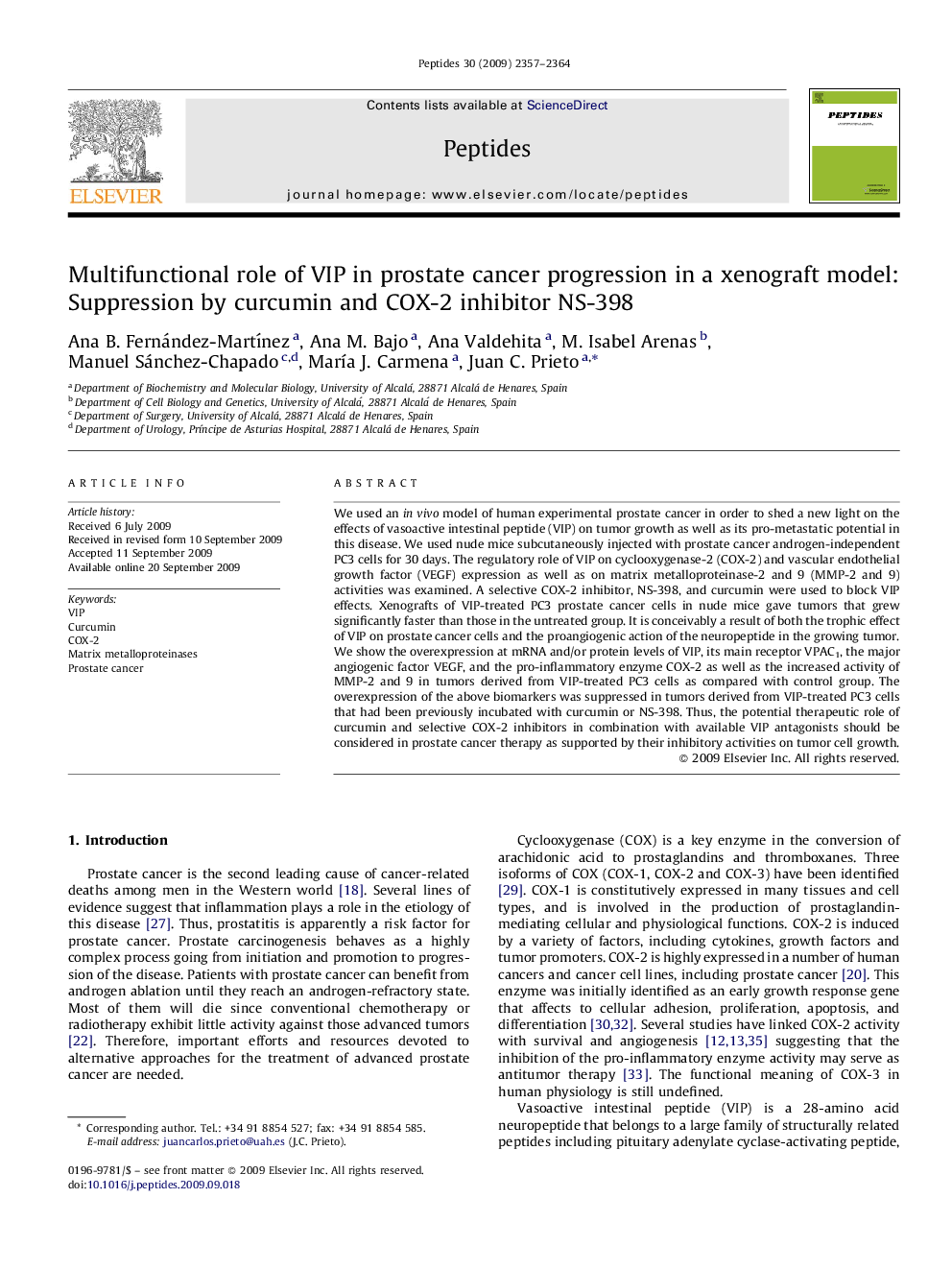| Article ID | Journal | Published Year | Pages | File Type |
|---|---|---|---|---|
| 2007064 | Peptides | 2009 | 8 Pages |
We used an in vivo model of human experimental prostate cancer in order to shed a new light on the effects of vasoactive intestinal peptide (VIP) on tumor growth as well as its pro-metastatic potential in this disease. We used nude mice subcutaneously injected with prostate cancer androgen-independent PC3 cells for 30 days. The regulatory role of VIP on cyclooxygenase-2 (COX-2) and vascular endothelial growth factor (VEGF) expression as well as on matrix metalloproteinase-2 and 9 (MMP-2 and 9) activities was examined. A selective COX-2 inhibitor, NS-398, and curcumin were used to block VIP effects. Xenografts of VIP-treated PC3 prostate cancer cells in nude mice gave tumors that grew significantly faster than those in the untreated group. It is conceivably a result of both the trophic effect of VIP on prostate cancer cells and the proangiogenic action of the neuropeptide in the growing tumor. We show the overexpression at mRNA and/or protein levels of VIP, its main receptor VPAC1, the major angiogenic factor VEGF, and the pro-inflammatory enzyme COX-2 as well as the increased activity of MMP-2 and 9 in tumors derived from VIP-treated PC3 cells as compared with control group. The overexpression of the above biomarkers was suppressed in tumors derived from VIP-treated PC3 cells that had been previously incubated with curcumin or NS-398. Thus, the potential therapeutic role of curcumin and selective COX-2 inhibitors in combination with available VIP antagonists should be considered in prostate cancer therapy as supported by their inhibitory activities on tumor cell growth.
